#also the way the dead are regarded in comparison to the survivors. the dead fought and it's so easy to see what they lost in doing so.
Photo
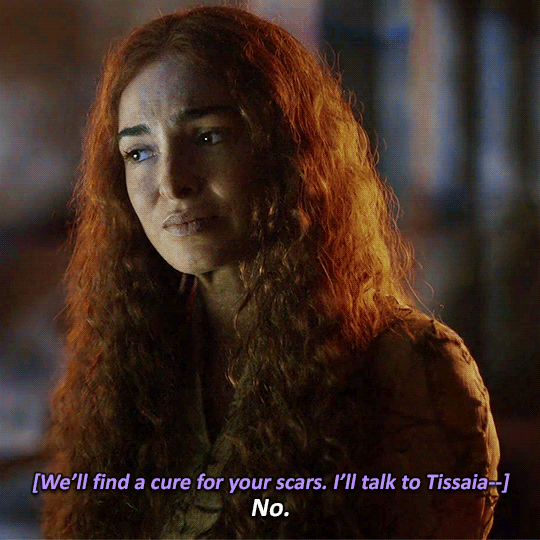
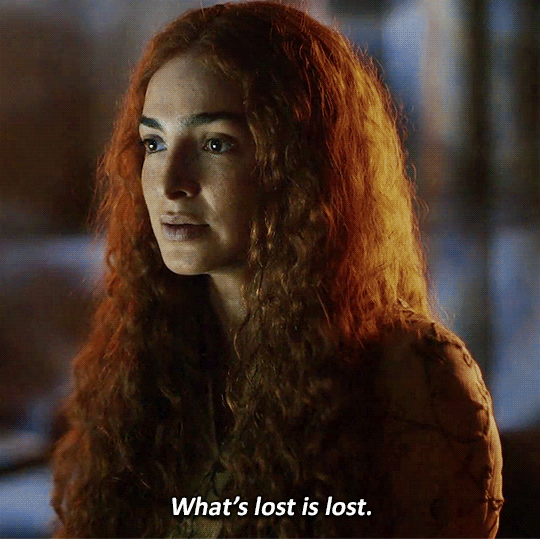

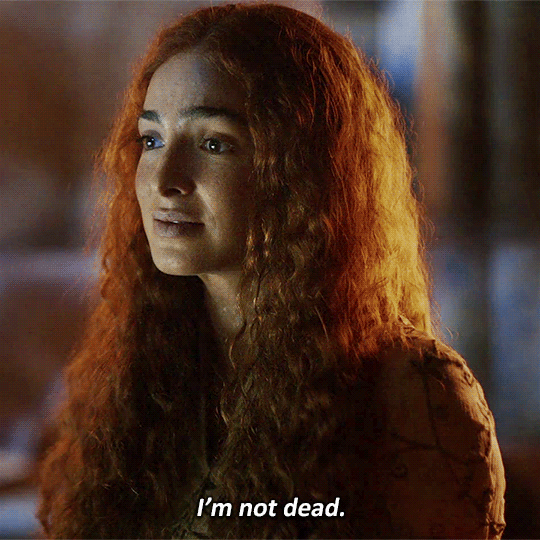
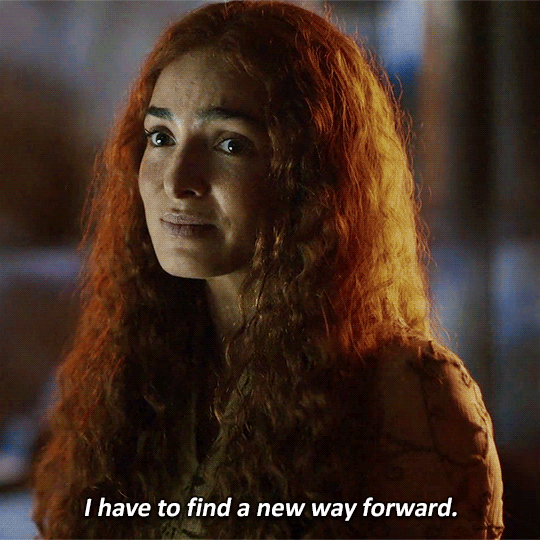
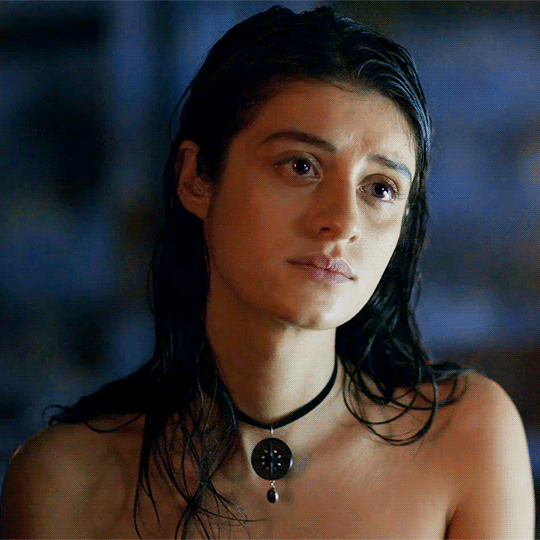
#the witcher#the witcher spoilers#thewitcheredit#witcheredit#witcherladies#triss merigold#yennefer of vengerberg#gif#angel.psd#i love this scene between them so much#just. the reflecting. the grief of something non-tangible.#the idea pervading that they should both be dead. but they aren't and maybe that's worse.#but nothing will change what is and what has happened. and finding a new way forward is all they can Do.#also the way the dead are regarded in comparison to the survivors. the dead fought and it's so easy to see what they lost in doing so.#the dead will be gifted with mourning and monuments but they are survivors and the world must keep spinning for them.#grabs onto this scene/theme like a lifeline and holds it very close to my heart#one of my faves from this season ❤
415 notes
·
View notes
Text
Realistic Character Writing in Jujutsu Kaisen (Anime Spoilers)
Kugisaki Nobara
During the episode that Kugisaki was introduced, I already knew that JJK was going to be different from other shounen anime I’ve watched. Putting aside how absolutely badass this girl is, in her debut episode one scene in particular stuck out to me, and that is when the Cursed Spirit she fought held a child hostage.
A Cursed Spirit had taken hold of a kid and threatened to kill him if Kugisaki didn’t surrender. In any other anime, if this happened, more likely than not the protagonist would offer themself up without question. However, while Kugisaki does ultimately discard her weapons and put her hands up, she did something first that legitimately surprised me.
She thought about it.
Kugisaki actually considered giving the child up to save herself, knowing that otherwise they would both probably die. She weighed her options against each other. In most other anime, there would be no contemplation because she’s supposed to be a hero, she’s supposed to do the good thing. But as good as Kugisaki is, she still doesn’t want to die.
Which brings me to the other scene I want to discuss about her. In the season finale, Kugisaki and Itadori had a conversation about the morality of killing the Death Painting brothers. Kugisaki accepted that it was part of the job, because that’s the reality they live in. Because while the death penalty can be argued to be inhumane in the world we live in, their world is vastly different.
In our world, all humans have about the same capability and resources to commit crimes, as any human can learn how to wield a gun or use a bomb. But in the world of JJK, there are people that have the power to accomplish much scarier feats that can end up hurting way more innocent people. If Gojo suddenly turned evil, it wouldn’t be enough to put him in a cell and call it a day because all life is sacred and killing is bad, because he has the ability to harm much more than the average person. He would be a much larger threat.
If Kugisaki had to pick between killing or dying, she would pick killing in a heartbeat.
Fushiguro Megumi
Fushiguro holds the same regard for killing as Kugisaki. He accepted it to be a part of his duty. However, one of the most fascinating scenes for me is his argument with Itadori about a dead prisoner during the Cursed Womb Arc.
It’s honestly a really interesting parallel with Kugisaki and her hostage scene. But instead of rescuing an innocent kid, it’s one who is older and has a criminal record. Because not all victims are pure and pristine. Sometimes rescuing one person could end up killing others, too.
However, saving the victim isn’t even an option in the scene, because he had long since died. What Itadori wanted to do was bring the body back for his mother to confirm his death as well as to give her closure. But Fushiguro doesn’t stop there either, because he doesn’t think it would be worth the risk. Bringing the body with them would make them prone to an ambush, and it would have slowed them down from potentially finding actual survivors who would be even more vulnerable.
And it’s a really gray area, because while the stereotypical heroic thing might be to stop everything to help one person, they are still just teenagers who need to look out for themselves, too. While Fushiguro was seemingly selfish when in comparison to Itadori, Fushiguro was also thinking about his companions who were with him and had much less mission experience.
Itadori Yuuji
Still in the Cursed Womb Arc is one of the most intriguing fight scenes in the anime, which was Itadori versus the Cursed Womb. Itadori had been built up to be this selflessly courageous martyr, sacrificing himself to let Fushiguro and Kugisaki escape.
But as he neared his death, Itadori suddenly burst into tears.
There was nothing inspiring or admirable to watch as Itadori got beaten up. All I could see was a kid crying out that he didn’t want to die, over and over again.
Anime is full of teenagers, children even, who are willing to sacrifice themselves for their friends or the world without a second thought. They are seen as martyrs, idolized for their bravery and heroism.
But JJK is different because instead of a perfect paragon unblinking at the prospect of death, we watched Itadori break down, full of yearning, regret, and tears.
However, what is important to note, is that Itadori still did it. He was still willing to give himself up if it meant protecting his friends, even if he was shown to be fearful and crying.
Because while JJK is unafraid to portray their heroes struggling in the harshness of reality, to portray them with human flaws and differing morals, to portray them being tempted to do the wrong thing, that doesn’t change the fact that they are still heroes.
27 notes
·
View notes
Text
Mini Myths #1: The Epic of Gilgamesh

Well for the first of my mini myths I think it’s only appropriate to start with what is considered the oldest written story in the entire history of the world. Now the way I’m going to structure these little mythological segments is by first looking at the context of the myth and then go into the actual myth itself before finishing off with a short piece about how they myth has been used and perceived in the modern day.
Context
The Epic of Gilgamesh is considered the old text of literature and is consider the second oldest religious text dating all the way back from the time of ancient Mesopotamia and is dated roughly around 2000 BCE. The epic itself was written on stone tablets with five Sumerian (The people Gilgamesh ruled over) poems being discovered. The Old Babylonian tablets dated around 1,800 BCE are the oldest surviving tablets for a single Epic of Gilgamesh narrative. Other tablet fragments have been dated closer to 200 BCE and 100 BCE suggesting that the epic is a widespread story in Sumerian culture. The most recent version of the story referred to as the Akkadian version and also called the Standard Babylonian version, consists of twelve tablets and was edited by Sîn-lēqi-unninni, who is thought to have lived sometime between 1300 BCE and 1000 BCE. Essentially the story is made up of several tablets that we have collected from different centuries to generally try to piece together a singular narrative. It bears noting the the I will be using the standard Babylonian version which is known for the Twelfth tablet being different from the others and thought to have been written at a later date.
The Epic of Gilgamesh
In a time of the old world when gods still walked the earth there stood a great and noble kingdom in ancient Mesopotamia. This was a rich and fertile land between the twin rivers of the Tigris and the Euphrates that provided its people with plenty and bountiful harvests. This rich land was populated by the great kingdom of Uruk, a kingdom ruled over by a man named Gilgamesh. Now Gilgamesh was not just any ordinary man, he was born two thirds a god and one third a mortal man. However this combination of divine birth and mortal fallacy helped to craft Gilgamesh into a cruel tyrant of a king who abused both his menfolk and the women, using them as he pleased with no regard for their lives.
In desperation the people of Uruk called out to the gods for help. And the god hear their pleas. From clay they craft a perfect equal to Gilgamesh, a divine being known as Enkidu. As he arrives in the mortal world he first meets a trapper who asks the gods to stop Enkidu from destroying his traps. The sun god Shamash send a temple prostitute to Enkidu and for nearly a fortnight the two spend time together in the warm embrace of lovers; and she teaches him all she can tell about the world on man, and of the civilisations born on earth.
The prostitute introduces him to a shepherd where he learns the craft of the trade until one day from a passing stranger he hears of the plight of the people of Uruk. Incensed by Gilgamesh’s heartless cruelty he races to the palace and faces down the king of Uruk. In that instant the pair fought with fire and fury and divine wroth as the engaged in a battle so fierce it compelled even the gods themselves to bear witness. Yet after a singular mighty blow Enkidu was brought to his knees and acknowledged the king, Gilgamesh, to be the superior of the two. And as a result the two naturally struck up an intense friendship that even the god themselves could not predict.
The pair shared in each others company and comforts as they travelled on many adventures together. They visited Gilgamesh’s mother the goddess Ninsun who adopted Enkidu as her own son. Later on they travelled to the Cedar forest where they defeat the guardian of the forest Humbaba and take his head as well as several of the strongest trees with the strongest of these to be used by Enkidu to craft into a gate for the temple of Enlil.
Upon their return the goddess Ishtar, queen of all that is fertile and ripe, falls for the king of Uruk and pursues him. However when Gilgamesh rejects her advances she used her immense powers to cause devastation throughout the lands of Uruk, lowering the level of the Euphrates and ultimately summoning Gugalanna, the divine bull of heaven to destroy Gilgamesh and Enkidu. But the king and his companion were too strong and overcame the powers of the bull, slaying it and offering up its heart to Shamash much to the displeasure of Ishtar.
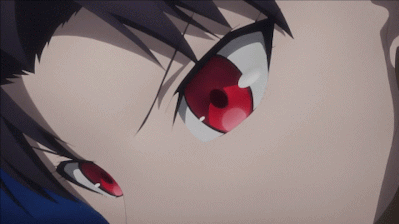
And yet on this occasion the two companions had gone too far in their quest for fame and glory. In their anger at the deaths of Humbaba and Gulalanna the gods curse Enkidu was horrific dreams until, after twelves days of horrid torment Enkidu succumbs to his sickness. In one final moment he reached to the sky and cries out to his friend, who holds him in his arms as he passes into the world of the dead. Yet the king of Uruk had more faith in his friend than that and clung to Enkidu’s body, refusing to believe he was dead until a pale white maggot, dropped from his nose and into the kings lap.
Gilgamesh wailed at the death of his friend, his lament reaching the heavens themselves and bringing even the gods to tears for what they had done. He calls out for the mountains and trees, the rivers and deserts, to all beasts of the land and to all the peoples of the world to mourn for the death of his dearest friend. Gilgamesh provides ample gifts from his endless treasury to help his friend ensure a favourable reception in the world of the dead.
Then the mighty king left Uruk and wandered the wilderness in nought but animal skins, lost in both body and in spirit. Yet it was among the far and wasted lands that the king became fearful for his own mortality and sought to spare his mortal soul the pains of death, seeking out Utnapishtim (The Faraway Lands) and learn the secret of eternal life.
In his quest Gilgamesh faces set back after setback though his own malic and wrought feelings of self-importance. He rejects warning after warning and presses on relentlessly for his ultimate goal. Upon reaching Utnapishtim Gilgamesh tells him his story however the immortal man warns him that fighting the common fate of humans is futile and diminishes life's joys. Utnapishtim was a survivor of a flood that wiped out the last race of humans and as a reward for surviving the god Enlil blessed both him and his wife with eternal life. Utnapishtim points out that his immortality was a unique gift and not something most mortal men were meant to achieve however Gilgamesh reminds him that he is not mere mortal man. To test him Utnapishtim challenges Gilgamesh to stay awake for sic days and seven night but tragically Gilgamesh is still one third mortal and he quickly succumbs to sleep.
Yet Utnapishtim was no cruel or spiteful and he offered Gilgamesh one more chance, he could not grant the king immortality but he told him of a plant at the bottom of the sea he could use to restore his youth. Thanking the immortal man Gilgamesh tied stones to his feet, sucked in a mighty breath and dove to the bottom of the sea. Finally, after many travels the king reached the plant and seized it. Feeling part of his hunger for life sated he made to return to Uruk where he would use the plant to restore his youth. Yet greater than the gods was the cruel hand of fate. As he returned the king made to bathe himself in a small lake. In that moment a slithering serpent darted from the undergrowth and snatched up the plant leaving the king once more with nothing. Broken the king first weeps then is seized by uncontrollable laughter as he realises how foolish it was to chase immortality. He returns to Uruk, where the sight of its massive walls prompts him to praise this enduring work to Urshanabi the man who ferried him to Utnapishtim.
Tablet twelve features a tale after these events where Enkidu is still alive and of a journey he make to the underworld to retrieve some of Gilgamesh’s possessions. It ends with Enkidu recounting the tale of his journey through the underworld with Gilgamesh.
Learning from the past
In the modern day the Epic of Gilgamesh hasn't had as much mainstream focus like the Greek pantheon or Norse mythology. However it has found a home in some popular media with a version of this tale being explored in the anime TV series ‘Fate’. Despite a lack of popular interest in the epic of Gilgamesh in western media however in the archaeological circle it has seen a lot of research and assigned significance. Interestingly in 1998 American Assyriologist Theodore Kwasman discovered a piece believed to have contained the first lines of the epic poem in the storeroom of the British Museum which has been used to determine that Gilgamesh may have been a real Babylonian king. The epic ha been translated and used by different people for different purposes with a definitive version published in 2003 by Andrew George which is considered the most significant work on Gilgamesh in 70 years. Yet on the other hand there is the case in 2004 as Stephen Mitchell supplied a controversial version that took many liberties with the text and included modernized allusions and commentary relating to the Iraq War of 2003. Clearly the Epic of Gilgamesh may still yet be used and have relevance in the modern world, particularly in the world of the Middle-East.
What i find we can learn from the epic is it provides clear context for views on how Sumerian’s valued particular morals and the tale helps to provide insight into Sumerian society and culture. It become key to aiding our understanding of ancient peoples and what they valued, providing points of comparison to the world we live in today with its moral teachings; particularly about the fruitless pursuit of things like immortality.
14 notes
·
View notes
Text
Seriously... I finished watching Black Sail and had several thoughts I want to keep in one post.
Spoilers ahead, of course.
Flint's ending: It's queerly romantic, in the most broad sense of the word. But it felt a bit odd to me. Not because I don't like it, I find it a good smart ending that doesn't imply “bury your gays”. But it felt unrealistic for the context of the series. Through the show, we saw Miranda telling Flint that she could not recognise herself in the way she had changed compared with the woman she was when Thomas was alive. Flint agreed in that respect, and made the same comparison with the man he was in that time. They wondered if Thomas could ever recognise them both now. The scene meant “we both changed too much”.
The message along the series is that loss and pain change you, transform you. Life is a painful continuously changing process. Even the characters that were “written in stone”, like Charles Vane, changed! So, with such reinforcement of the narrative related to “change”, Flint's ending feels troublesome.
How can Thomas, such a naïve and over-idealist man, embrace this Flint, so distant to the man he left in England? The level of tragedy and horror and blood that Flint's wake spread in those years in the real world can't be overlooked, not by Thomas who was a man who cared so much about the manners and the procedures.
Flint also killed Thomas' father. Imagine that scene where he knows this news... I don't know exactly if this news could be problematic for Thomas, since we did not see him too much to infer what kind of reaction he may have. He could be disappointed for his father, but that's different to wanting him dead, specially due to his lover's hand. How much of this event can hurt Thomas' love?
And Flint, in the end, abandoned Thomas' war. Flint himself, in the first time he is asked, said that Thomas would never put aside this war due to all what it means. In the second time he is asked, when he hesitated, it was more his own desire .
After all, Flint is so fucking tired of all this war and blood. I think that letting Silver get closer to him showed that; he was tired of fighting, he was tired of killing his closest partners just because the war demanded it. When he and Silver talked privately, and Flint disclosed his story to Silver, they joked about how they would end. Silver even joked that Flint should not worry to fear to be killed by him. And Flint's response was one of a such tired man. It transpired that he was in peace with the fact that, if Silver ever attempted against his life, he was going to let him do it. Flint is a man so alike to the one that belong to England and Thomas. How the hell this Thomas would see this man? I wonder.
So, for all that, even though I think this ending is nice and Flint truly wanted this [his idea of a Pirate Kingdom to have a place where all pirates can retire and live in peace was always in his plans even though he never allowed himself to be part of it, probably because Thomas was not in that Kingdom]. Flint has changed so much, that honestly, I think Thomas would be completely horrified of him. I don't know how much Thomas could look aside or forgive. This series is also about how forgiveness has limits too... so I wonder.
Sure, Thomas probably changed a lot, but his experience was far less violent and less mutable as Flint's. I don't know. I have mixed feeling with this ending. Maybe too cheesy and open for the deep darkness it hides.
Madi's ending: This was super sad to me. We saw in this series that all women had always been controlled and manipulated or coerced by men. Eleanor's story is exactly this, reflected in most women in the narrative. I thought Madi was going to be the exception... but it was not. Silver, the white man, decided for her what was best for her.
I know, war is not a solution in general... but he denied her anger. He decided for her. He did not allow her to make her own mistakes. And she ended up accepting it just fine. It felt odd. I suppose the best way to describe it is “it felt grey”, like most things in this series.
Sure, war was not the solution of anything... but this whole ending of never doing the revolution and taking comfort in half-measures that can be changed so easily without much consequences.... I mean, as long as Max lives in Nassau, there will be no slaves.... once she dies... what?. I suppose the series has the answer in several repeated scenes: “nothing lasts”. I suppose the freedom of the black people is something that “would not last” either. I felt a bit weird with that idea floating in the last episode.
Eleanor’s ending: Another woman in the series whose ending was so fucked up. I would not mind her story if she were the only woman whose narration is about how fucked up men control women's lives. But sadly, her story was just taking this narrative to the extreme... since her story is the reflection of the life of most women in this series. Anne is controlled by Jack and/or the guilt or gratefulness she has for him, Madi by Silver, Miranda by Flint... most women dancing to the whims of their men. Eleanor thought she was in control of everything, she was the independent strong woman... and yet, her control jumped from man to man, from his father, to Charles Vane, to Flint, to Scott, to the governor. She was never truly free of a man's control, and this is such a devastating truth for her. Her story is so sad... and a lot of her most disgusting betrayals were fuelled by those men. Super sad her ending.
John Silver ’s ending : He is my fave char. Probably his ending is the one I like the most. He was always smart enough to avoid death in the most disastrous situations. But in the process, he started to become darker. Over days, he became closer to Flint, to his thinking process, to his darkness. I understand he saw that he was getting close to become Flint at some point, and Madi put a stop to that. She changed things in his life. Flint also helped him to stop that process, opening himself to him. It's sad to me that Silver could find a way to take control over his own life by deciding over Madi. I know, breaking the cycles is a nice narrative... but I'm not so sure I like to see it when a white man decided such a thing, when you have a wise smart black woman there to do it.... But again, this series is all about grays. It was a nice but at least, realistic shade of gray.
Max's ending: Probably the best ending of all chars. She fought so much to be in control of her own life... and she finally could do it. With a level of intelligence that it was a pleasure to see. She was not even under the control of a man... she was men's toy. Her story is so fucking painful. And somehow, she survived thanks to her intelligence. In that regard, she is like Silver: both hard survivors thanks to their brains. At least she could overcome that fate of being in control of a man. She denied that chance of marry an idiot noble because she wanted to have control over her life and her decision of trying to retake Anne. Lesbian love in gray shades.
Anne's ending: I loved her char. But again, I felt so weird when her life is, once again, restrained to what she feels she owes to Jack. I thought I was going to find a scene of relief when she fought those men that saved her crew's lives. But no. It was just more of the same... the bodyguard of Jack. I don't resent it much though, because Jack truly loves her and cares for her in beautiful ways... but that scene of Anne resenting her own feeling of being in eternal debt with Jack stuck in my mind.
Billy's ending: this char was so surprising to me. He went from one extreme to the other... and he, more than any other char, showed that life, events, tragedy, pain, and loss, change people. And it changes them in ways from where there is not return.
Charles Vane ’s ending : He was a beast. There is almost nothing to say in his favour, he was evil-chaotic to the core. But his vulnerabilities were unbelievable when you contrast them with his personality. How such evil-chaotic man could do such gestures of (twisted) love? Sure, he did a lot for Eleanor in his wickedest ways, but the most surprising love I saw in him was for Jack and Anne. And honestly, being he the symbol of the beginning of the revolution is such a gray thing that this series used. It felt, like all things in this show, wrong and good at the same time. There was probably no other char in this story more “free” and “animal-savage-like” than him. He dismissed domesticity, he hated “peaceful” times. He was a char born in battle to die in battle. Revolution had to be born from this savage to be effective, so he being hanged was a reinforcement of that sentiment that had to be inspired in the revolution. But at the same time, he was absolutely random, selfish [in the beginning] and his behaviour was mostly the confirmation of all the demonization that the stories tell about pirates. He being the symbol that starts the revolution was also a way to tinge the revolution with cruelty and dirt.
I don't know, this series is fabulous. It's so gray that you can be thinking in each char, in each concept... and nothing is sacred, nothing is clean, nothing is pure. Nor good nor bad. Just a disgusting mixture of dirty and evilness and humanity. Masterpiece.
I loved this story, because its complexity makes the watchers think, and that's such a feat to do. But on the other hand, I felt the ending in general not very inspiring, tending to a moderate solution that, through history, we know it changes nothing. Moderate solutions [in times of slavery and empires] are absolutely prone to corruption and to return to the previous state of things.
The only thing I did not like was the unbalanced display of naked bodies or sex scenes when it came to women vs men. We saw all actress naked or having sex with other women and/or men in many, many, many times. In the whole series, only 2 men were displayed naked, and never was shown any gay sex scene. We only had 2 kisses between two men, very chaste, and almost hidden. I mean, I can't care less about nakedness in general or sex scenes, but I'm always annoyed when I see such a big unbalance when it comes to women vs men or straight sex vs gay sex vs lesbian sex. It made me feel that this serie was done thinking mainly in the male gaze. Hell, considering how most female chars are controlled by men [mostly in their endings, showing that their stories are not exactly stories of emancipation] made me confirm this.
But putting aside that, it was a hell of a story, and I loved it.
1 note
·
View note